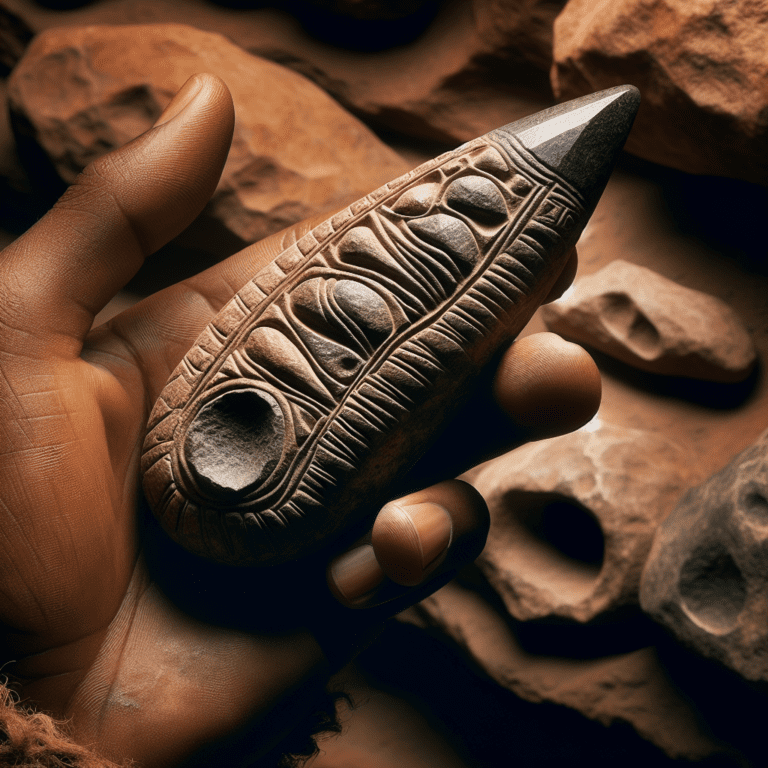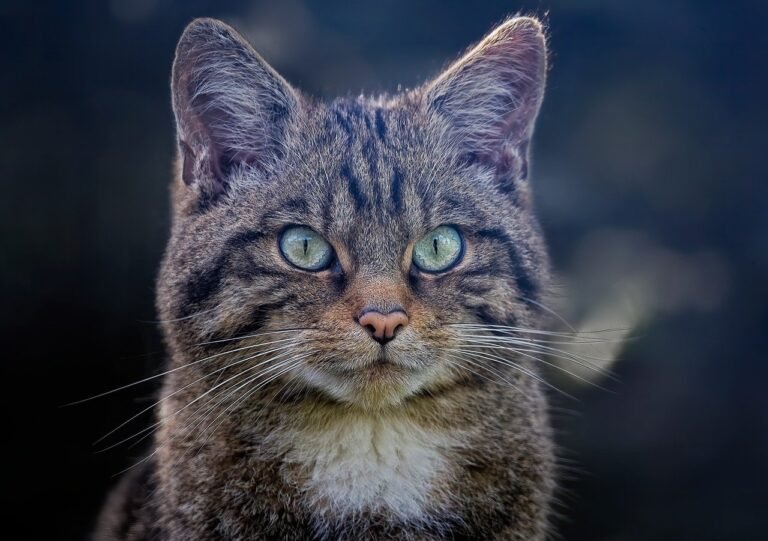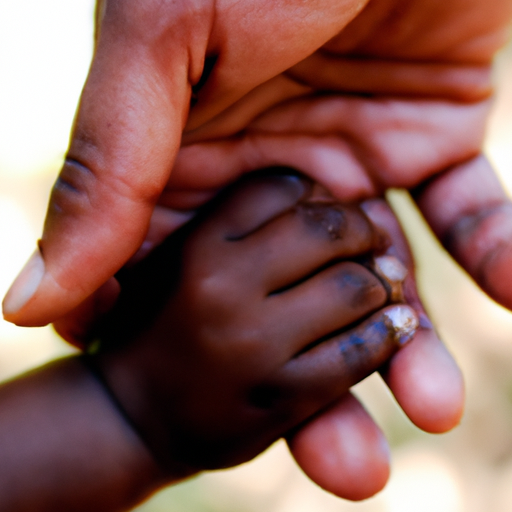Can You Go Scuba Diving Or Snorkeling In Kenya?
If you’re a lover of all things underwater and have Kenya on your travel radar, you’re in for a treat! With its stunning coastline along the Indian Ocean, Kenya offers fantastic opportunities for scuba diving and snorkeling. From exploring vibrant coral reefs teeming with multicolored fish species to encountering majestic marine creatures like dolphins and sea turtles, you’ll be in awe of the aquatic wonders that await you. So grab your snorkel or don your scuba gear, because Kenya is ready to take you on an unforgettable underwater adventure. Yes, you absolutely can go scuba diving and snorkeling in Kenya! With its stunning coastline along the Indian Ocean, Kenya offers a wealth of opportunities for underwater exploration. Whether you’re a seasoned diver or a beginner snorkeler, the crystal-clear waters of Kenya’s marine parks and reserves are waiting to be discovered. In this comprehensive article, we will take a closer look at the scuba diving and snorkeling opportunities in Kenya, from the popular dive sites and marine life to the necessary certifications and safety precautions. So pack your swimwear and get ready for an unforgettable adventure in the underwater wonders of Kenya!
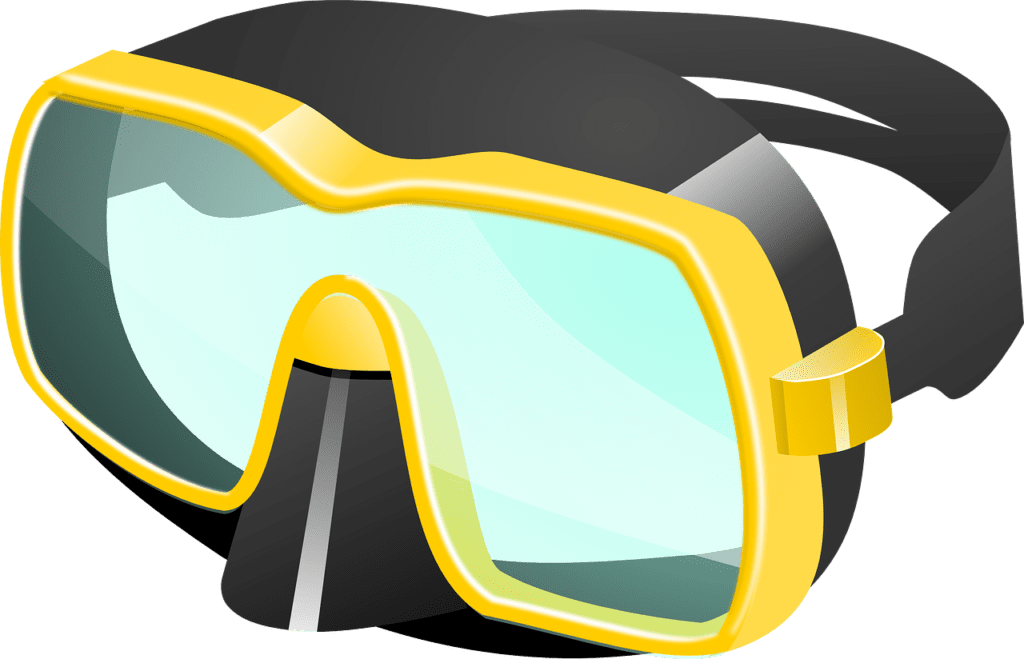
This image is property of pixabay.com.
Scuba Diving in Kenya
When it comes to scuba diving, Kenya has an abundance of dive sites that cater to divers of all levels of experience. From vibrant coral reefs teeming with marine life to exhilarating deep-sea drop-offs, Kenya has it all. Let’s dive into the popular scuba diving spots, diving conditions, marine life, diving season, and the diving centers and operators that can make your diving dreams come true.
Popular Scuba Diving Spots
Kenya is home to several renowned scuba diving spots that attract divers from around the world. One such spot is Diani Beach, located on the south coast of Kenya. With its warm waters and diverse marine ecosystem, Diani Beach offers the perfect setting for underwater exploration. Lamu and Malindi are also popular scuba diving destinations in Kenya, known for their colorful coral gardens and encounters with majestic marine creatures.
Diving Conditions
The diving conditions in Kenya are generally favorable throughout the year. Visibility can range from 10 to 30 meters, depending on the location and season. Water temperatures average between 25 to 28 degrees Celsius, making it ideal for diving without the need for a wetsuit. The calm and clear waters allow for excellent visibility, ensuring that you don’t miss any of the breathtaking underwater sights.
Marine Life
One of the biggest draws of scuba diving in Kenya is the rich marine life that inhabits its waters. From vibrant coral reefs to an array of tropical fish species, divers can expect to encounter an underwater paradise. Keep an eye out for graceful manta rays, playful dolphins, and even the elusive whale sharks. Kenya’s reefs are also home to unique macro creatures, such as nudibranchs and seahorses, adding to the diversity of marine life.
Diving Season
The diving season in Kenya is year-round, but there are certain months that offer optimal conditions for diving. The months between November and March provide excellent visibility and calm waters, making it an ideal time to explore Kenya’s underwater treasures. However, even during the other months, diving can still be enjoyed, with marine encounters and dive experiences that are sure to leave you mesmerized.
Diving Centers and Operators
To ensure a safe and enjoyable diving experience, it is recommended to dive with certified diving centers and operators. These professionals will guide you through the underwater world of Kenya, providing expert knowledge and ensuring adherence to safety protocols. Some popular diving centers and operators in Kenya include Aqua Ventures, Buccaneer Diving, and Ocean Tribe.
Snorkeling in Kenya
If you prefer to stay closer to the surface while still immersing yourself in the beauty of Kenya’s marine world, snorkeling is the perfect option. Kenya offers a range of snorkeling spots that provide easy access to stunning coral reefs and an abundance of colorful fish. Let’s explore the best snorkeling spots, snorkeling conditions, marine life, snorkeling equipment, and snorkeling tours and guides to help you get the most out of your snorkeling adventure.
Best Snorkeling Spots
Kenya boasts some incredible snorkeling spots that guarantee a visual feast for snorkelers. One of the top spots is the Marine National Park located at Malindi. With its shallow and calm waters, the park offers an excellent snorkeling experience for both beginners and experienced snorkelers. Watamu Marine Park is another popular snorkeling destination, known for its vibrant coral reefs and an opportunity to encounter fascinating marine creatures.
Snorkeling Conditions
Snorkeling in Kenya is possible year-round, thanks to the favorable conditions of its coastal waters. The calm, warm, and clear waters provide excellent visibility, allowing snorkelers to fully immerse themselves in the vibrant underwater world. Water temperatures range from 25 to 28 degrees Celsius, making snorkeling a comfortable and enjoyable activity.
Marine Life
When it comes to marine life, snorkelers in Kenya are in for a treat. The colorful coral reefs are home to an array of fish species, including parrotfish, angelfish, and butterflyfish. Snorkelers may also encounter turtles gracefully gliding through the water or marvel at the vivid hues of clownfish darting in and out of their anemone homes. Snorkeling in Kenya offers a unique opportunity to witness the beauty and diversity of marine life up close.
Snorkeling Equipment
To fully enjoy your snorkeling experience in Kenya, proper equipment is essential. A well-fitted mask, snorkel, and fins are the basic essentials for snorkeling. The mask should provide a watertight seal around your face, allowing for clear vision underwater. The snorkel enables you to breathe while your face is submerged, while fins provide propulsion and maneuverability in the water. Most snorkeling centers and operators provide rental equipment for convenience.
Snorkeling Tours and Guides
For those who prefer a guided snorkeling experience, numerous snorkeling tours and guides are available in Kenya. These tours will take you to the best snorkeling spots, providing valuable insights into the marine life and ecosystems you encounter. Snorkeling guides will not only keep you safe but also enhance your snorkeling experience with their knowledge and expertise.
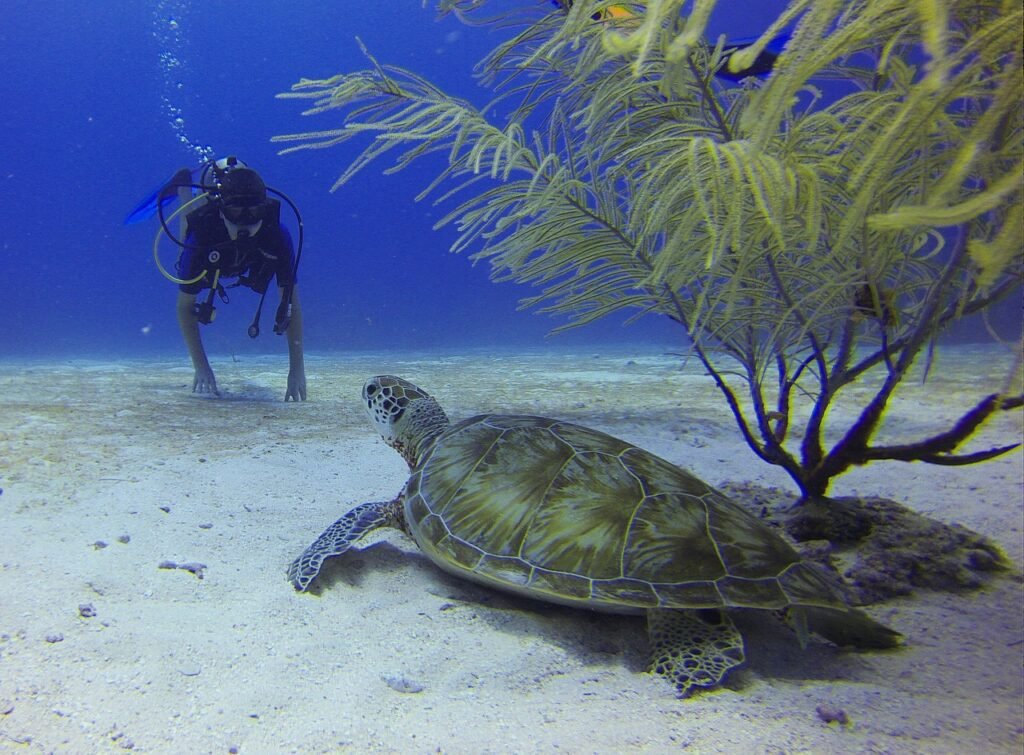
This image is property of pixabay.com.
Requirements and Certifications
Before you embark on your scuba diving or snorkeling adventure in Kenya, it’s important to be aware of the required certifications and any necessary prerequisites. Let’s dive into the scuba diving certifications and snorkeling requirements to ensure a smooth and hassle-free experience.
Scuba Diving Certifications
If you wish to explore the depths of Kenya’s underwater wonders as a scuba diver, it is recommended to have a scuba diving certification. There are several internationally recognized certification agencies, such as PADI and SSI, that offer courses and certifications at various levels. These certifications ensure that you have the necessary knowledge and skills to dive safely and responsibly.
Snorkeling Requirements
Unlike scuba diving, snorkeling does not require any specific certifications. However, it is important to have basic swimming skills and feel comfortable in the water. Snorkelers should also be mindful of their limits and stay within their comfort zone while snorkeling. It is always advisable to snorkel with a buddy and inform someone on land about your snorkeling plans for added safety.
Conservation and Marine Protection
Preserving the marine ecosystems in Kenya is of utmost importance to ensure the sustainability of scuba diving and snorkeling activities. Let’s explore the marine protected areas in Kenya and the conservation organizations working tirelessly to safeguard the underwater environment.
Marine Protected Areas
Kenya has established several marine protected areas (MPAs) to conserve its fragile marine ecosystems. These MPAs include marine parks and reserves that restrict certain activities and regulate human interactions to minimize the impact on the marine environment. Some notable MPAs in Kenya include Kisite-Mpunguti Marine National Park, Watamu Marine National Park, and Malindi Marine National Park.
Conservation Organizations
Various conservation organizations in Kenya are dedicated to protecting the marine environment and promoting sustainable tourism practices. These organizations work towards raising awareness, implementing conservation programs, and conducting research to ensure the long-term health and vitality of Kenya’s reefs. Examples of such organizations include Watamu Marine Association, the East African Whale Shark Trust, and the Local Ocean Conservation.

This image is property of pixabay.com.
Safety Precautions
Safety should always be a top priority when engaging in scuba diving or snorkeling activities. Let’s explore some safety precautions, emergency procedures, and the importance of diving insurance to ensure a safe and enjoyable experience in Kenya’s waters.
Diving and Snorkeling Safety Tips
Before diving or snorkeling in Kenya, it is essential to follow basic safety guidelines. These include ensuring proper equipment maintenance, checking weather and dive conditions, conducting pre-dive or pre-snorkel safety checks, and never diving or snorkeling alone. It is also important to dive or snorkel within your limits, conserve your energy, and be mindful of your surroundings and the marine life.
Emergency Procedures
In the event of an emergency while diving or snorkeling, it is crucial to know the appropriate emergency procedures. This includes ascending slowly and safely, signaling for help if needed, and following any instructions or protocols taught during scuba diving or snorkeling training. Being prepared for potential emergencies ensures that you can respond effectively and minimize risks.
Diving Insurance
Having diving insurance is highly recommended to provide financial coverage in case of any unforeseen incidents or accidents. Diving insurance typically covers medical expenses, emergency evacuation, and equipment-related losses. Before embarking on your scuba diving adventures in Kenya, make sure to check if your insurance policy includes coverage for diving activities.
Environmental Impact
As visitors to the underwater world, it is our responsibility to minimize our environmental impact and promote sustainable practices. Let’s explore ways in which we can protect Kenya’s reefs and marine life through conscious actions, as well as the significance of reef-safe sunscreens.
Minimizing the Environmental Impact
To minimize your environmental impact while scuba diving or snorkeling in Kenya, it is important to follow basic guidelines. Do not touch or disturb marine life, do not remove any living or non-living organisms from the ocean, and avoid anchoring on coral reefs. Additionally, practice responsible waste management, avoid littering, and participate in community beach clean-up programs to contribute to a cleaner environment.
Reef-Safe Sunscreens
When enjoying water activities in Kenya, including scuba diving and snorkeling, it is crucial to use reef-safe sunscreens. Traditional sunscreens often contain harmful chemicals that can harm coral reefs and marine life when they wash off in the water. Opt for reef-safe sunscreens that are free from oxybenzone and octinoxate, and instead contain non-toxic ingredients that do not pose a threat to the underwater ecosystem.
Other Water Activities in Kenya
While scuba diving and snorkeling are the highlights of Kenya’s water adventures, there are other exciting activities to enjoy as well. Let’s dive into kayaking and paddleboarding, fishing and deep-sea fishing, and boat cruises and tours that offer unique experiences in Kenya’s stunning coastal regions.
Kayaking and Paddleboarding
Exploring Kenya’s coastal waters on a kayak or paddleboard is a wonderful way to appreciate the beauty of the coastline from a different perspective. Glide through the calm waters, admire the marine life beneath you, and enjoy the serenity of the surrounding nature. Whether you choose a leisurely paddle or an adventurous kayak expedition, kayaking and paddleboarding offer memorable experiences for water enthusiasts.
Fishing and Deep-Sea Fishing
For those looking for an exhilarating fishing experience, Kenya’s coastal waters offer ample opportunities. Embark on a fishing trip and try your hand at catching gamefish such as marlin, sailfish, and tuna. Deep-sea fishing enthusiasts can venture further out to sea in pursuit of larger pelagic species. Whether you’re a seasoned angler or a first-time fisher, the waters of Kenya hold exciting possibilities.
Boat Cruises and Tours
If you prefer a more relaxed water activity, hop aboard a boat cruise or tour and explore the stunning coastal scenery of Kenya. Sail along the coastline, take in panoramic views, and enjoy the serenity of the ocean. Many boat cruises also offer the opportunity to spot dolphins or even witness the breathtaking migration of humpback whales. Immerse yourself in the tranquility of the open waters and create unforgettable memories.
Accommodations and Planning
When planning your scuba diving or snorkeling trip in Kenya, selecting the right accommodations and making necessary arrangements are key to a seamless experience. Let’s explore scuba diving and snorkeling resorts, booking and planning tips to ensure a comfortable and well-organized trip.
Scuba Diving and Snorkeling Resorts
To fully immerse yourself in the scuba diving and snorkeling experience, consider staying at resorts that cater specifically to these activities. These resorts often have partnerships with diving centers or provide their own on-site diving and snorkeling facilities. Some popular scuba diving and snorkeling resorts in Kenya include Hemingways Watamu, Swahili Beach Resort, and The Sands at Chale Island.
Booking and Planning Tips
When booking your scuba diving or snorkeling trip in Kenya, it is advisable to plan in advance to secure the best accommodations and diving or snorkeling packages. Researching the reputation and reviews of diving centers, resorts, or tour operators is also important to ensure a reliable and enjoyable experience. Additionally, consider the location, facilities, and services offered by the accommodation to meet your specific needs and preferences.
Conclusion
Kenya’s underwater world is a paradise waiting to be explored. Whether you choose to dive deep into its depths or admire its beauty from the surface, scuba diving and snorkeling in Kenya offer incredible experiences for all water enthusiasts. With its diverse marine ecosystems, vibrant coral reefs, and fascinating marine life, Kenya’s underwater treasures are sure to leave you captivated. By adhering to the necessary certifications, safety precautions, and conservation practices, you can contribute to the preservation of Kenya’s marine environment. So pack your snorkel or don your scuba gear, and get ready to embark on a memorable aquatic adventure in Kenya!


